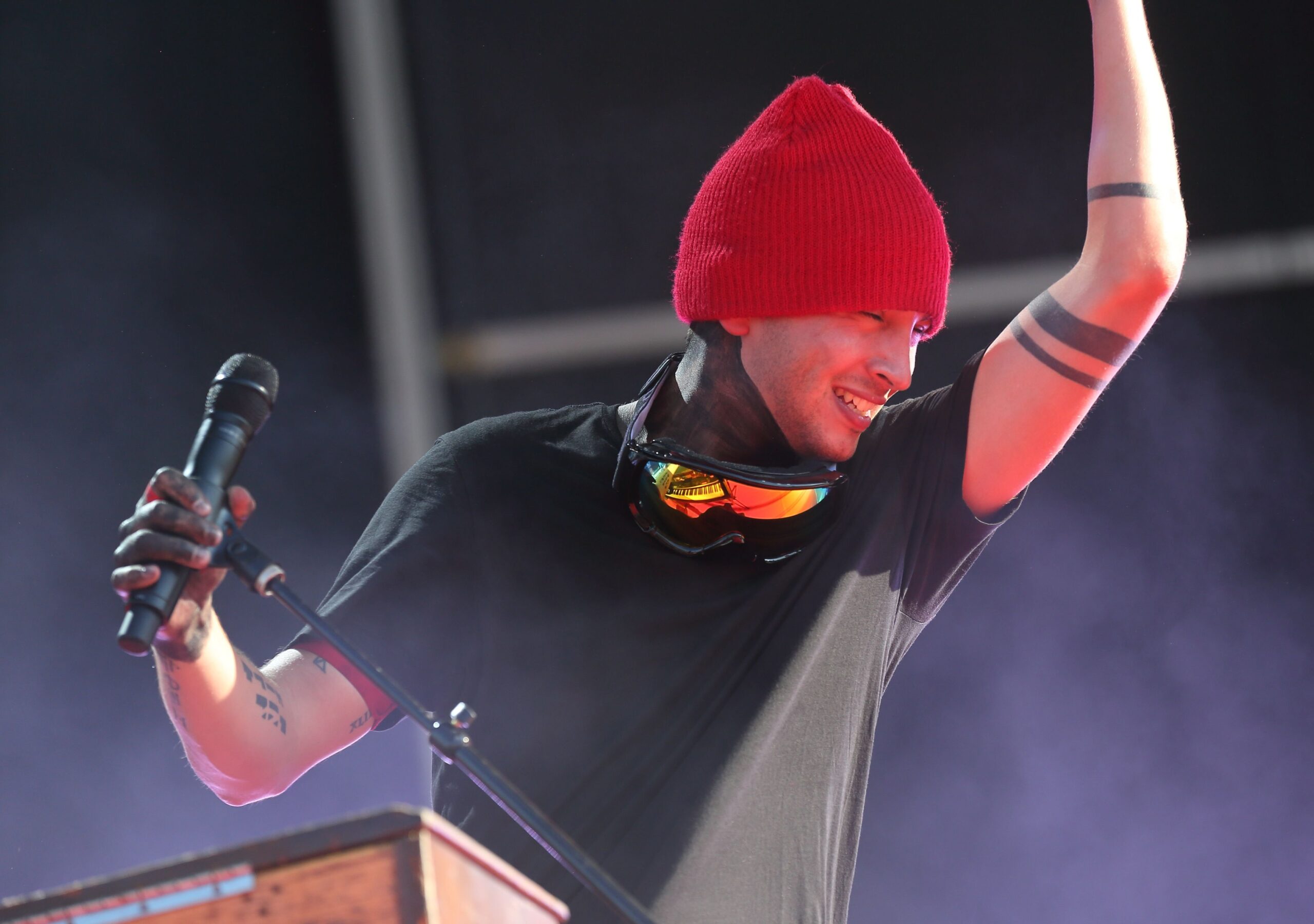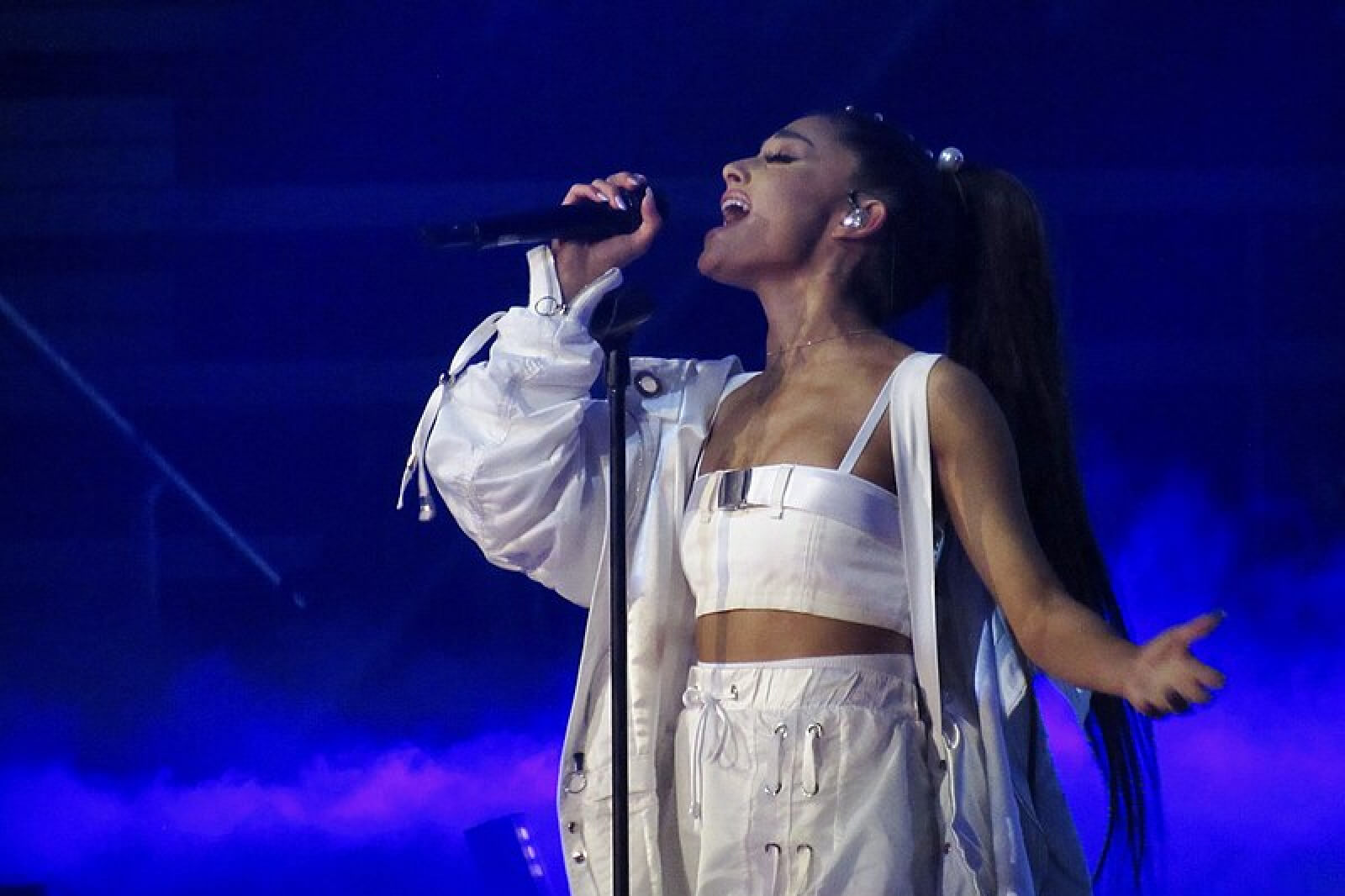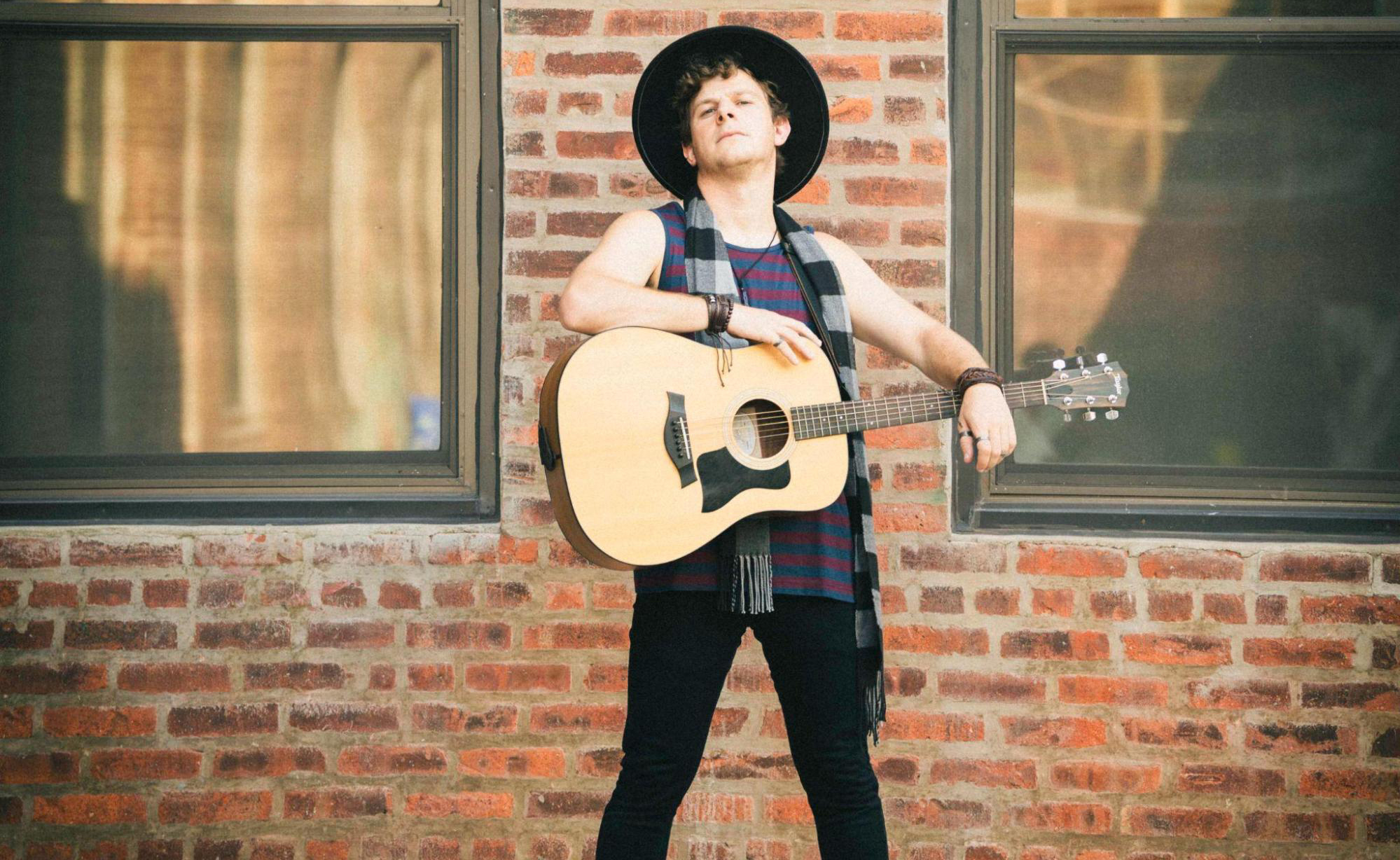LibertyProject
Twenty One Pilots and Apoliticism in the Black Lives Matter Era
03 Sep, 20

Tyler Joseph of Twenty One Pilots performs at the Lollapalooza Music Festival in Grant Park, in Chicago Lollapalooza 2015 - Day 3, Chicago, USA
Photo by Steve C Mitchell/Invision/AP/Shutterstock
As 2020 continues to test our collective sanity, some celebrities have proven to be extremely out of touch.
It’s nothing new for Hollywood’s elite to make tone-deaf social media posts making light of current events, and the heightened awareness brought to the Black Lives Matter movement following the murder of George Floyd by police has shown many people’s true colors. The latest offender in an ever-growing list of disappointments is Tyler Joseph, singer of the very popular rock duo Twenty One Pilots.
“You guys keep asking me to use my platforms,” Joseph wrote on Twitter September 2. “Feels good to dust these bad boys off.” The “bad boys” in question are a pair of towering white platform shoes, which—to make matters even worse—are apparently from Dolls Kill, a brand that has made headlines this year over purported racism.
Joseph’s tweet was immediately met with criticism from fans, and understandably so; by referencing “you guys,” he admitted to being aware of his fans’ pleas for him to make a very simple statement: Black Lives Matter. Rather than using the viral tweet to spotlight any social justice organization to his 2.2 million followers, he very blatantly doubled-down on the joke—even after fans pointed out where he had gone wrong.
In his tweets, Joseph continued to bring awareness to Suicide Prevention Week, which is in September. “Your own mental health should always be a priority,” Joseph wrote in a long-winded thread of tweets. “I’m amazed at how easy it is to forget that simple fact. It’s something that can sneak up on you, then eventually you check in on it and realize it’s in really bad shape. I’m trying to cut through to who really needs to hear this. This is tough, but it’s not hopeless. Fighting for your mental health is not public, it’s not glorious, it’s not even interesting, but it’s the greatest challenge you will face.”
Joseph explained that he doesn’t know if he “can even handle everything that’s happening right now,” adding, “Mentally/emotionally, I can only carry so much, because what I do care about is so heavy, the thought of adding more on top of it makes me want to stop trying.”
Lastly, Joseph wrote: “This isn’t a notes app moment. I’m doubling down on my platform tweet. It was fantastic.”
It wasn’t until two hours later that Joseph finally tweeted in vague support of Black Lives Matter, though the gesture felt like an inconsequential attempt to save face in the midst of some of his peers receiving backlash over racist remarks. There’s a lot wrong with his rant; and ultimately, it reeks of white privilege.
Twenty One Pilots are a multi-record-breaking rock band and one of the most-streamed artists in the world. At the time of writing this article, they’re the 173rd most-listened-to artist on Spotify with over 17 million monthly listeners. It’s safe to presume that Twenty One Pilots have hundreds of thousands of Black fans who Joseph essentially told: “Your life doesn’t matter to me as much as making a joke on social media.”
Of course, Suicide Prevention Week is important, too, and the impact the Joseph has made in mental health awareness since Twenty One Pilots’ explosive rise to fame is palpable. In the 11 years since his band’s debut album, Joseph’s lyrics have candidly referenced his own struggles with depression, low self-worth, and suicidal ideation.
While it’s noble of Joseph to help normalize such struggles, he missed a perfect opportunity to bring light to how mental illness specifically affects Black people. According to information compiled by Mental Health America, adult Black people are “more likely to have feelings of sadness, hopelessness, and worthlessness” than their white peers. Black teenagers are more likely to attempt suicide than white teenagers, while suicidal thoughts, plans, and attempts are rising among Black people as a whole.
And because Black people are less likely to be covered by health insurance than white people, it’s also less likely that Black people have access to mental health resources like therapy and medication. All of this information doesn’t even take into account the tensions in the Black community following the highly-publicized murders of George Floyd, Breonna Taylor, and a growing list of other Black people by police.
This is not to say that Joseph’s mental health struggles aren’t valid. Clinical depression doesn’t spare any demographic, even wealthy, famous white men. But depression isn’t an excuse to blatantly mock fans who have made a simple request.
Should celebrities speak publicly about their political beliefs? The answer isn’t a simple “yes” or “no.” It’s easy to say “yes” in the case of Taylor Swift, who ended years of political silence by slamming Republican Tennessee Senator Marsha Blackburn in 2018. But the political leanings of Joseph and his bandmate, drummer Josh Dun, have been frequently speculated about; perhaps it would be better for them to stay silent on which party they identified with than for them to, hypothetically, come out as Trump supporters.
But Black Lives Matter should not be a political issue. Equal rights for the LGBTQ+ community should not be a political issue. It shouldn’t be radical for a celebrity to say that they wholeheartedly support people of different races and sexualities—it’s common sense.
It’s totally normal if you, like Joseph claims to be, are too caught up in the devastating happenings of the world right now to devote energy to your interests or well-being. But it doesn’t take a lot of energy to say that Black Lives Matter. Considering everything that’s threatening our country right now, it’s perhaps the easiest thing to do.













